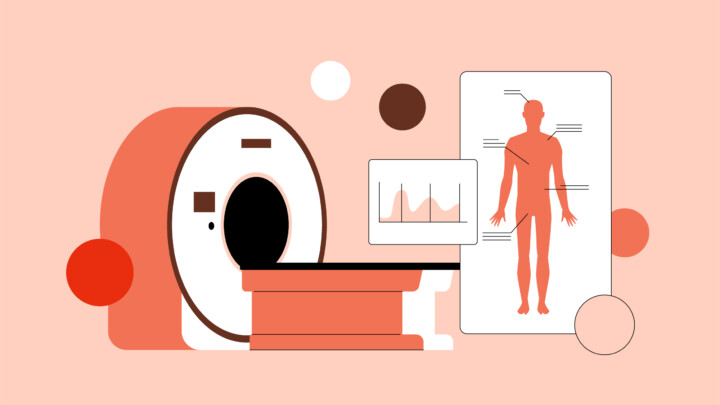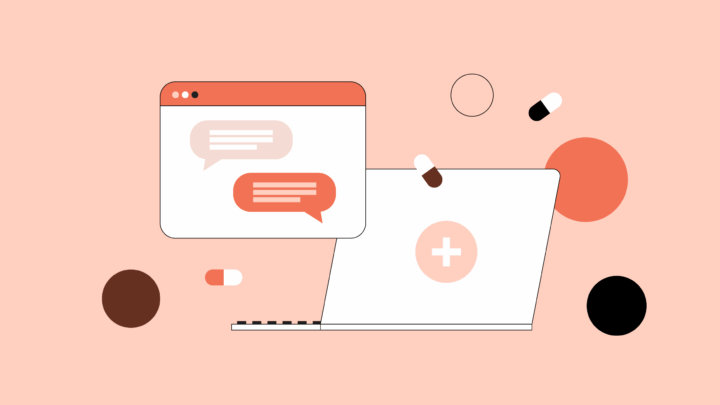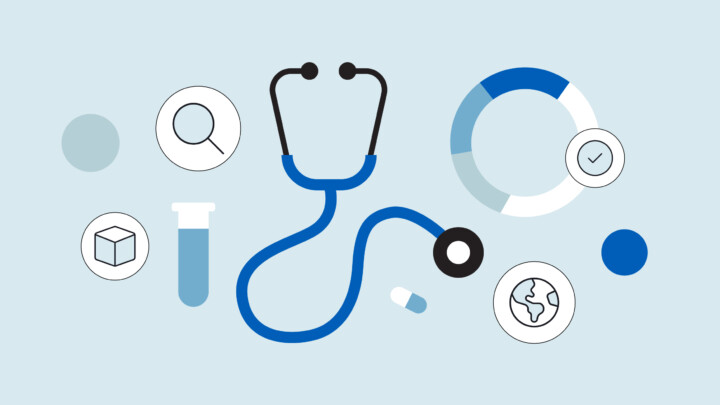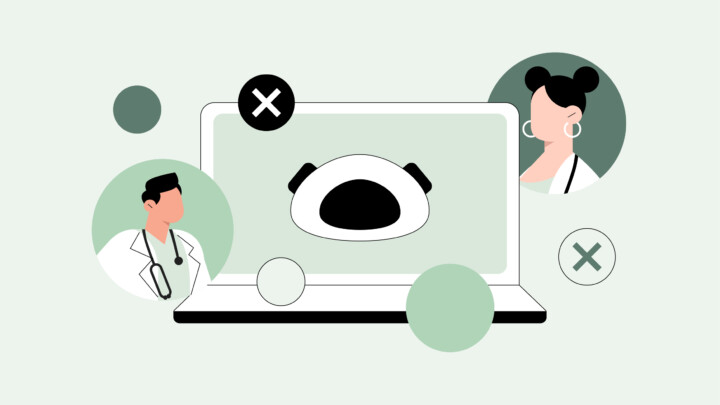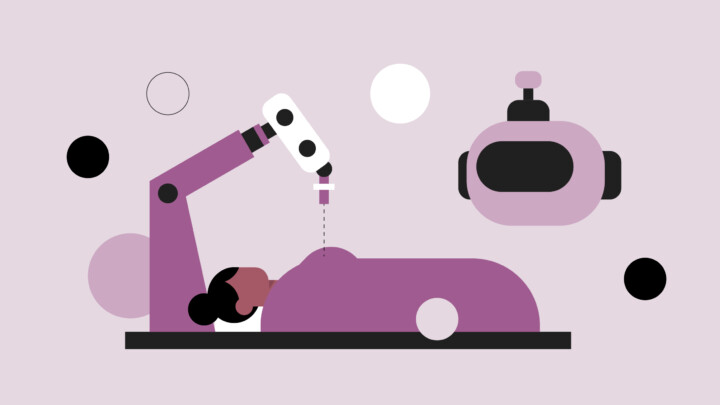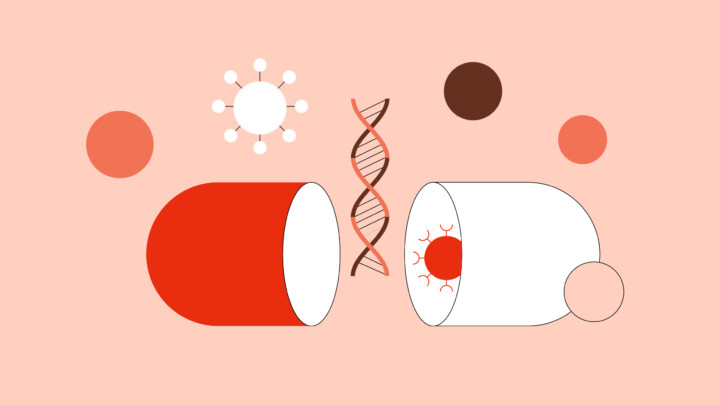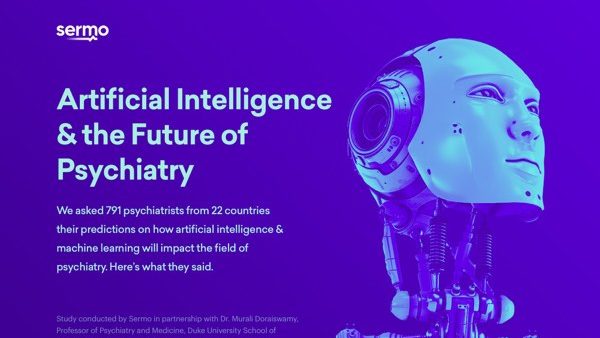
Artificial intelligence is rapidly transforming modern medicine, with 58% of physicians on Sermo predicting it will be the emerging medical technology with the biggest impact on patient care in the next 5 years. From streamlining administrative tasks to enhancing diagnostic accuracy, AI tools in healthcare are reshaping the medical landscape at an unprecedented pace.
As we stand at the intersection of technology and medicine, understanding how artificial intelligence in healthcare is revolutionizing patient outcomes has become essential for every healthcare professional. The integration of AI medical applications, AI-driven healthcare solutions, and AI algorithms represents not just a technical upgrade but a fundamental change in the approach to patient care, clinical decision-making, and healthcare management.
In this article, we explore how AI is transforming the fundamentals of healthcare, the top healthcare AI tools, and how physicians can overcome the challenges of implementing AI.
The current landscape of AI in healthcare
About 66% of U.S. physicians report actively using AI in some capacity within their medical practice in 2024, marking a significant increase from just 38% in 2023. AI tools in healthcare encompass a broad spectrum of technologies, ranging from diagnostics to automated administrative tasks. These intelligent systems leverage machine learning, deep learning, and natural language processing to augment human expertise and improve healthcare delivery.
Physicians can see AI’s potential in enhancing patient care, with Sermo survey results highlighting key benefits: 25% believe AI’s greatest value lies in identifying at-risk patients earlier, while 20% cite improved diagnostic accuracy. Others point to personalized treatment planning (17%), enhanced patient monitoring (15%) and faster decision-making (13%).
AI in healthcare includes systems that detect abnormalities faster and streamline documentation through electronic health records integration. For example, AI tools like Mia for breast cancer detect up to 13% more cancers than radiologists. For a comprehensive understanding of how these technologies are transforming medical practice, explore Sermo’s complete guide to AI in healthcare.
Healthcare professionals today are experiencing a technological revolution across various domains, with AI applications in healthcare becoming increasingly sophisticated and accessible. From AI chatbot tools for patient intake and triage to smart stethoscopes for remote monitoring, these tools are not replacing physicians, but rather empowering them with enhanced capabilities and deeper insights. The use of medical AI software and AI applications for healthcare enables healthcare organizations to process vast amounts of health data efficiently, helping clinicians predict outcomes, reduce errors, and deliver more personalized treatments.
AI tools for healthcare are transforming the healthcare industry, enabling medical AI solutions that improve patient outcomes and workflow efficiency. From hospital artificial intelligence to AI applications in healthcare, these solutions demonstrate practical uses of AI, such as predictive diagnostics, personalized care, and support for medical professionals.
AI applications in clinical practice
Modern AI applications can transform routine medical practices through intelligent chatbots that provide initial patient screening, AI scribes that automatically generate clinical documentation, and large language models that assist with complex diagnoses. These AI medical applications demonstrate how technology can reduce administrative burden while maintaining clinical excellence.
A Family Medicine physician expressed enthusiasm about AI integration, stating, “I have heard of offices having an ‘AI scribe’ that essentially hears your encounter and writes a note for you. Now that would be awesome!” This sentiment reflects the practical benefits that AI tools bring to everyday medical practice, particularly in documentation and patient care.
AI-powered diagnostic tools are particularly noteworthy, offering physicians advanced pattern recognition capabilities using AI models and algorithms that can detect subtle abnormalities in medical imaging, laboratory results, and patient data. These healthcare AI applications serve as powerful second opinions, helping clinicians identify conditions that might otherwise be overlooked. Because artificial intelligence algorithms are trained on vast datasets, AI systems can accurately predict risks and enhance the accuracy of diagnoses.
Telemedicine
In 2025, telehealth accounted for 23% of all U.S. healthcare encounters, with virtual visits surpassing 50% in select specialties, confirming its shift from novelty to necessity. The integration of AI tools for healthcare with telemedicine platforms has created even better opportunities for remote patient care. As one GP noted, “Every health practitioner should adopt telemedicine as a way to expand medical practice.” This reflects the growing recognition of telemedicine’s potential to bridge geographical gaps and improve healthcare accessibility.
For example, AI systems like Mayo Clinic’s AI-powered remote monitoring have reduced hospital readmissions by 40% through continuous, individualized patient diagnoses, trend analysis and early detection of issues.
Artificial intelligence upgrades telemedicine by providing real-time clinical decision support, automated symptom assessment, and intelligent triage capabilities. These features enable healthcare providers to deliver high-quality care remotely while maintaining diagnostic accuracy and treatment effectiveness.

Wearable technology and remote patient monitoring
AI-enabled devices and wearables transmit real-time health metrics (e.g., heart rate, blood pressure) for analysis, supporting early intervention and creating custom care plans for chronic disease management and mental health. Multimodal AI integrates voice, imagery, biometrics, and electronic health data for more comprehensive risk assessments and personalized care.
A dermatologist observes, “We have implemented telemedicine, but I think wearable technology will have the biggest impact in the next 5 years.” This prediction aligns with the growing sophistication of AI medical applications in wearables that continuously monitor vital signs, detect irregular patterns, and alert healthcare providers to potential health issues.
Remote patient monitoring systems powered by artificial intelligence software for healthcare can predict health deterioration before clinical symptoms appear, enabling proactive interventions that improve patient outcomes and reduce healthcare costs. These systems are particularly valuable for managing chronic conditions, post-surgical care, and high-risk populations.
Robotics
Surgical robotics enhanced by AI technology represents the most advanced level of AI in healthcare. Robotics systems don’t operate autonomously but instead use AI for image enhancement, tissue identification, and precision guidance.
- Robotic surgery assistance: Artificial intelligence systems like the Da Vinci Surgical System and Stryker’s Mako enable minimally invasive procedures with higher accuracy, reduced human error, and faster recovery. AI algorithms provide real-time feedback, correct errors, and optimize operative planning, leading to lower rates of complications and shorter hospital stays.
- Rehabilitation and mobility support: Exoskeletons and robotics help patients regain strength and mobility, especially after stroke, injury, or surgery. These AI-driven systems tailor physiotherapy routines and monitor patient performance, enabling faster, more effective rehabilitation.
- Routine task automation and nursing assistance: Robots handle tasks like medication delivery, supply transport, room cleaning, and routine vital monitoring, allowing clinical staff to focus on direct patient care. Nurse-assisting robots such as Moxi are deployed in hospitals to manage non-patient-facing procedures, reducing workload and improving care efficiency.
- Pharmacy automation: Robots in pharmacies can automate medication storage, retrieval, and dispensing, reducing errors and increasing efficiency in medication management, particularly for high-volume hospital pharmacies.
As a Medical Director Assistant from Ethiopia notes, “I’ve seen firsthand how emerging medical technologies can transform healthcare delivery. Innovations like electronic health records (EHRs), telemedicine, and AI-driven diagnostics have immense potential to enhance efficiency and patient outcomes.” This comprehensive view demonstrates how multiple AI applications for healthcare work together to transform healthcare delivery, particularly in AI Transforming Healthcare Administration.
Top AI tools for healthcare
Healthcare professionals today have access to an ever-expanding array of AI tools for doctors, AI medical services, AI systems, and AI apps that enhance every aspect of medical practice. Here are the top examples of AI tools and use cases available today:
Drug discovery
Sermo AI: Coming soon, Sermo is launching the world’s first conversational drug insight engine, powered by the Sermo community’s drug ratings tool. Sermo AI will allow physicians to ask questions about any drug, anytime and receive an instant response based on the collective real-world experience and drug ratings submitted by triple-verified doctors.
BenevolentAI: BenevolentAI uses machine learning to identify therapeutic compounds and predict drug efficacy, leveraging a decade of investment in their knowledge graph and proprietary ontologies to empower scientists and executives with AI.
Atomwise: Employs AI-powered molecular modeling to predict how compounds interact with disease targets, accelerating drug discovery for rare diseases.
Artificial intelligence tools play a vital role in healthcare by shortening development timelines and enabling precision therapeutics, a central aspect of AI-driven medical care. The combination of AI technology with drug discovery accelerates innovation, transforming how new treatments are developed and personalized for patients.
Diagnostic imaging
Aidoc: Provides rapid AI-powered medical imaging analysis for emergency conditions like strokes and pulmonary embolisms. Creates a unified healthcare AI platform to improve workflows, data accuracy, and patient care in a fragmented system.
Blackford: Offers comprehensive enterprise-level AI solutions for medical imaging workflows, integrating seamlessly into hospital systems. It currently has 150+ contracted AI applications across 60+ partner vendors, covering 8 clinical and operational service lines.
These AI medical applications can enhance accuracy, reduce diagnostic errors, and support clinicians in high-stakes decision-making.
Medical documentation
Nuance Dragon Ambient eXperience (DAX): Automates compliant clinical note generation by capturing patient-physician interactions.
Augmedix: Combines AI and human expertise to produce high-quality, compliant clinical documentation.
Integration with electronic health records and AI technology enhances data capture, reduces clinic workload, and enables clinicians to focus on patient care.
Surgical robotics
Da Vinci Surgical System: Uses AI for features like tissue thickness sensing, real-time analytics, and force feedback to improve surgeon performance and patient outcomes, though the system remains controlled by the human surgeon, not autonomous robots. The AI provides detailed data on surgeon technique and can generate objective performance measurements for training.
Metamorphosis: Uses adaptive learning algorithms for tissue identification and image enhancement, supporting surgical decisions. They research AI’s role in improving orthopedic and spinal procedures with smarter, faster guidance, developing tracker-free 3D navigation tech.
AI in robotics primarily functions in areas like image enhancement or tissue identification, rather than directly controlling machinery. These medicine AI tools exemplify AI applications for healthcare that augment rather than replace physician expertise.
Predictive analytics
Ada Health: Combines AI-powered symptom assessment and clinician input with predictive analytics to provide personalized patient insights.
Altair AI Studio: Identifies patterns in patient data to predict outcomes and optimize healthcare resource allocation. Altair AI Studio offers automated clustering, predictive modeling, feature engineering, and time series forecasting, enabling efficient work for experienced data scientists and quick model building for new users.
Predictive analytics exemplifies how AI can be used in healthcare to prevent complications and personalize care.
Personalized medicine
Tempus: Leverages AI for precision oncology, enabling targeted cancer therapies. Tempus offers a suite of AI-enabled platforms that support clinical providers and researchers, including Tempus One for rapid insights and patient data retrieval, Tempus Hub for managing tests and results, and Tempus Link for streamlined clinical trial matching. Additional tools like Tempus Now integrate directly into EHRs for seamless workflows, Tempus Lens provides no-code data analysis for researchers, and Tempus Pixel delivers AI-driven insights from medical images. Lastly, Tempus Next helps identify care gaps with real-time population tracking.
Personalized medicine demonstrates AI medical applications that improve treatment effectiveness while minimizing adverse effects, forming a cornerstone of precision medicine.
AI clinical decision-making tools
UpToDate: Combines AI and the evidence-based recommendations from over 7,600 clinical experts for intelligent, evidence-based clinical decision support. UpToDate Expert AI understands complex, highly specific questions that mirror the way clinicians think. It also provides key assumptions, anticipates common missteps, and explains the rationale, sources, and evidence behind each recommendation.
OpenEvidence: Uses AI to scan and synthesize medical publications to provide physicians with actionable recommendations. According to a physician on Sermo, “OpenEvidence AI is like having a top-tier research assistant… a massive time-saver… helping us be more efficient, precise, and stay updated, freeing us up for what’s most important: our patients.”
These AI tools for doctors exemplify the growing role of AI in healthcare, enabling physicians to make more informed decisions in complex scenarios.

Physicians’ confidence and adoption of AI tools in healthcare
The successful implementation of AI depends heavily on physicians’ confidence and willingness to adopt new technologies. Factors influencing adoption include familiarity with the technology, demonstrated effectiveness, user-friendliness, and available training and support. In a recent Sermo survey, 36% of physicians said they are ‘very’ comfortable with implementing emerging tech into practice, and 47% felt somewhat comfortable, while 17% didn’t feel capable.
A Gastroenterology specialist notes, “Emerging medical technology, especially AI, will change medical practice as we know it today, improving the diagnosis and treatments, and reducing costs and efficiency.” Similarly, a GP expressed enthusiasm, stating, “I am a fan of technology in all fields. Artificial intelligence has come to change the way we face the world and how we can improve it.”
A Cardiology specialist emphasizes practical benefits: “Excellent, especially for front-line doctors. We know how much technology has already advanced and will advance even more, making everyday life easier.” Integration with evidence-based resources is critical. An OBGYN from the USA shares on Sermo, “AI for documentation assistance and potentially reminding or suggesting things to cover… If AI is tied into proper reference sites of evidence-based medicine (Up To Date, CDC, USPSTF, etc.), it can also be helpful.”
These insights highlight the impact of real-world AI implementation on physicians and patients. To increase AI adoption in healthcare, institutions must address organizational readiness, invest in foundational technologies such as API connectivity and data infrastructure, and foster a team culture of continuous learning. 45% of surveyed physicians feel that they have enough support to implement emerging technologies like AI, whereas 29% feel they don’t. An Emergency Medicine physician notes, “The ease of incorporating such integration is frequently influenced by factors such as familiarity with the technology, its demonstrated success, user-friendliness, training opportunities, and available support.”
Concerns and challenges of AI tools in healthcare
Despite promising potential, physicians have legitimate concerns about the widespread implementation of emerging medical tech, including medical AI systems. After surveying over 1,200 physicians within the Sermo community, 20% of physicians are concerned about patient privacy, 33% about cybersecurity, 32% about depersonalization of healthcare, and 12% are worried about the lack of reimbursement.
Many AI tools and AI models are “black boxes” where the training, guidance, and traceability are not publicly disclosed. That’s why to maintain clinical judgment and patient trust, physicians must endeavor to understand how artificial intelligence tools in healthcare use patient data, scrape the web, and reach automated conclusions. That said, the top examples of AI healthcare tools, which we listed above, are transparent with ethical guardrails.
A GP on Sermo underscores the double-edged nature of AI adoption, stating, “It is important to note that these emerging medical technologies bring their own risks. On the one hand, they offer innovative solutions to complex health problems. On the other hand, they pose new challenges such as medical data privacy, cybersecurity, and the need for constant updating of health professionals.”
Data privacy and cybersecurity threats represent a significant concern, as AI systems in healthcare require access to sensitive patient information and electronic health records. Healthcare organizations must implement robust security encryption and HIPAA privacy rules when leveraging AI-powered health care innovation.
Bias in AI algorithms presents another critical challenge in AI applications for healthcare, as AI systems may perpetuate stereotypes and exacerbate existing healthcare disparities if not properly reviewed. Ensuring that AI-powered apps, AI tools, and AI systems are trained on diverse datasets without training bias is crucial for delivering fair and effective healthcare.
A Physiatry specialist emphasizes gradual AI implementation in healthcare, “Changes should be introduced gradually, keeping in mind that older patients adapt more slowly, if at all. Anything that increases administrative time is not a win; also, I am concerned about telemedicine reducing direct doctor-patient contact.”
Some physicians express fundamental concerns about AI technology. One GP from the USA admits, “I find AI to be the most frightening advancement in medical technology. I worry it will make us not think, and I don’t feel like I can trust it.”
The lack of comprehensive government regulation creates uncertainty about the widespread implementation of artificial intelligence across healthcare systems. Healthcare providers need clear guidelines to confidently integrate healthcare AI tools without exposing patients or their practice to unnecessary risks.
The future impact of AI tools for healthcare on patient care
As natural language processing, machine learning, and deep learning evolve in artificial intelligence, predictive analytics will become increasingly sophisticated, enabling healthcare providers to identify health risks before symptoms appear. As AI algorithms and AI systems advance, they will detect patterns invisible to humans, strengthening preventive medicine. This proactive approach enabled through AI software for healthcare could dramatically improve outcomes while reducing costs.
Personalized medicine powered by the best AI for healthcare will likely become mainstream, with treatment plans tailored to individual genetic profiles, lifestyle factors, and disease characteristics. This personalized approach represents some of the most impactful AI use cases in healthcare for the coming years.
An Infectious Disease specialist shares: “AI will revolutionize outpatient care in the next five years by enabling faster diagnoses and personalized treatments. It can streamline administrative tasks, giving physicians more time for patients. However, data privacy and system integration remain key challenges that must be carefully addressed.”
A GP from Venezuela emphasizes broader impact: “My hope is that these emerging medical technologies have the power to transform not only health care, but society as a whole. By improving people’s health and well-being, they can increase productivity, reduce health care costs, and foster economic development, particularly in the poorest and most economically and health-deprived countries.”
The integration of AI applications in healthcare will extend beyond diagnosis and treatment to encompass entire care pathways. Medical AI tools will enable more coordinated, patient-centered care delivery models through advanced automations and self-correcting AI systems, where tools, models, and agents work together to improve healthcare.
Key takeaways
Healthcare AI tools represent an inevitable and powerful force, shifting the practice of medicine forever. From enhancing diagnostic accuracy to streamlining administrative tasks, AI in healthcare offers unprecedented opportunities to improve patient outcomes, reduce costs, and expand access to quality care.
AI in the healthcare industry continues evolving rapidly, with medical AI applications becoming increasingly sophisticated and accessible. The examples of AI tools above demonstrate that artificial intelligence used in healthcare is not replacing physicians but augmenting their capabilities. The role of AI in healthcare will continue to evolve as technology advances and physicians gain greater confidence in these healthcare AI tools.
Key takeaways for successful AI implementation in healthcare include providing adequate training and support, carefully considering ethical implications, and implementing a gradual integration approach that respects both physician expertise and patient preferences. The future of AI in healthcare depends on physician leadership, ongoing staff training, and transparent development executed through clear ethical and legal guidelines.
How AI can be used in healthcare will ultimately depend on the medical community’s ability to safely adopt these technologies while maintaining the human touch that defines quality healthcare. The medical community must actively participate in the development and deployment of AI to ensure that AI tools serve the best interests of both healthcare providers and patients.For physicians navigating technological transformation, Sermo provides invaluable forums, resources, and polls for discussing new healthcare AI applications, sharing best practices, and collaboratively shaping the future of medicine. Join Sermo today to get real-world advice on how to implement emerging tech into your practice successfully.
